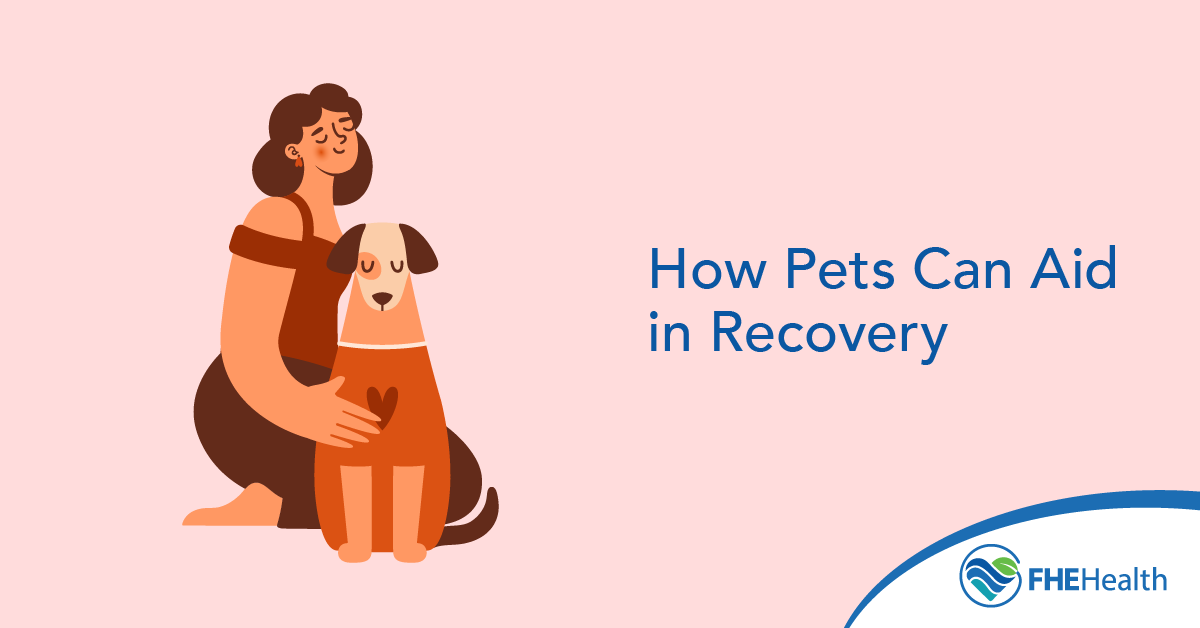
Humans have long relied on animals for help, support, and therapeutic companionship, and it is easy to see why. Animals provide a comforting presence and unconditional love: They don’t judge you for your past and can help give you a reason to stay sober when things get tough. Learn more about the benefits of owning a pet in recovery and how to tell whether adopting a pet or rescue dog in recovery may be right for you.
The Therapeutic Benefits of Pets in Recovery
Having a rescue dog in recovery could help you feel more interested in life and less alone in your recovery. They can be a shotgun sidekick when you need to go for a drive, and they’re happy to head out on a walk anytime you need to clear your head. In fact, 60 percent of people who own a dog get the recommended amount of exercise each week. Just knowing that an animal is depending on you for love and care can give you a reason to continue your journey in recovery, even if you don’t feel like doing it for yourself.
Having a pet can also help you make connections with other people, and community is an important part of life after addiction. Taking your dog to the dog park, for example, can give you an immediate topic of conversation as you meet people who can eventually become friends.
Dogs for Depression and Psychiatric Service Animals
Today, there are dogs specifically trained to help manage certain mental health conditions like depression, anxiety, and PTSD. These “psychiatric service animals” know the cues for when their owner is in distress or having a psychotic episode; and they know what to do to provide a calming presence and keep their owner safe. Service animals can also remind owners to take their medication and follow through with certain aspects of a healthy self-care routine, such as getting outside for a walk or socializing with neighbors.
How Pets Can Help Reduce Stress and Anxiety
Pets don’t just provide you with love, companionship, and a road trip partner. Adopting an animal can provide real benefits for physical and mental health, especially when you’re in recovery from a substance use disorder. Petting an animal can reduce stress and even lower your blood pressure. When you experience difficulties in life and are tempted to use drugs or alcohol to cope, a pet can help you stay calm and keep you grounded in the present moment until the urge passes.
Animals also show affection freely. They don’t have any of the stereotypes rolling around in their heads, and they don’t care about what you did in the past. A puppy’s head will nudge anyone’s hand for a pet as long as there’s love there.
Building Routine and Responsibility Through Pet Care
Recovering from an addiction requires that you make changes to your day-to-day activities. It’s important to be around new people who support your sober lifestyle and avoid old habits or environments that could cause you to relapse. Owning a pet provides automatic structure and routine to your day. A dog needs to be taken out to potty in the morning and for a daily walk, and even lower-maintenance pets like cats need routine care like filling food and water dishes and scooping out the litter box.
It can be much easier to get out of bed when a friendly, loving face is the first thing you see in the morning. After all, if you need to get up to feed Fido, you might as well go ahead and get some breakfast for yourself. Animals also learn routines and start to expect certain things to happen at certain times, so you’ll get an insistent nudge or pointed meow when it’s meal or playtime.
Choosing the Right Pet for Your Recovery Journey
It’s clear that pet ownership provides a host of benefits, but it’s also making a commitment to that animal for the rest of their life. It’s important to spend plenty of time thinking about what animal would fit into your lifestyle and to be honest with yourself about your capacity to care for another creature at this stage in your recovery. Dogs generally require more care than cats and can be more expensive to own, with mandatory vaccines and potential boarding expenses if you need to go out of town and can’t take them with you. Cats can be left alone for a day or two as long as they have access to food, water and a litterbox, but they can be more destructive when it comes to clawing furniture and carpet.
If you’re looking for something extremely low maintenance that won’t be an extra burden as you’re adjusting to life after addiction, even something as small as a couple of fish can bring you enjoyment and still give you the opportunity to perform routine care, such as cleaning the tank and feeding them.
Of course, pets aren’t for everyone, and timing is critical. Popular wisdom in recovery circles recommends at least one year of sobriety before adopting a pet. The goal is to be in a mentally and financially stable space that can accommodate the daily care and financial responsibilities of having a pet.
Ultimately, that investment of time and effort can be very rewarding, as evidenced by the research. Pet owners are reportedly happier and feel more loved than people who do not own pets. For some people in recovery, that may mean a world of difference.






